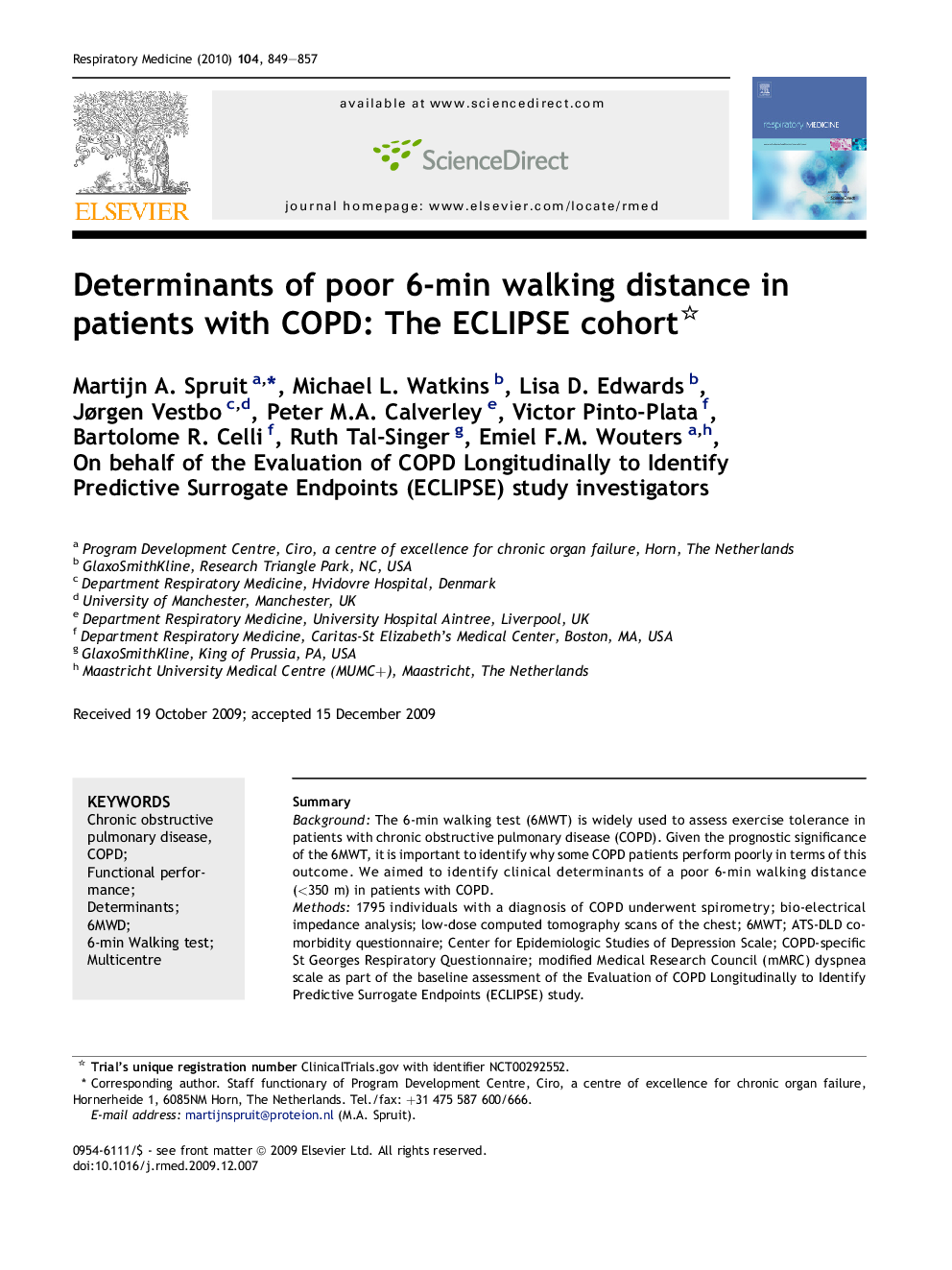| Article ID | Journal | Published Year | Pages | File Type |
|---|---|---|---|---|
| 4210563 | Respiratory Medicine | 2010 | 9 Pages |
SummaryBackgroundThe 6-min walking test (6MWT) is widely used to assess exercise tolerance in patients with chronic obstructive pulmonary disease (COPD). Given the prognostic significance of the 6MWT, it is important to identify why some COPD patients perform poorly in terms of this outcome. We aimed to identify clinical determinants of a poor 6-min walking distance (<350 m) in patients with COPD.Methods1795 individuals with a diagnosis of COPD underwent spirometry; bio-electrical impedance analysis; low-dose computed tomography scans of the chest; 6MWT; ATS-DLD co-morbidity questionnaire; Center for Epidemiologic Studies of Depression Scale; COPD-specific St Georges Respiratory Questionnaire; modified Medical Research Council (mMRC) dyspnea scale as part of the baseline assessment of the Evaluation of COPD Longitudinally to Identify Predictive Surrogate Endpoints (ECLIPSE) study.ResultsPatients with COPD have significant differences in performance in the 6MWT even after stratification for GOLD stages. Moreover, severe airflow limitation by GOLD stage, degree of emphysema by CT, oxygen use during/after the 6MWT, presence of depressive symptoms and moderate to severe symptoms of dyspnea (mMRC grade ≥2) are significant clinical determinants of poor 6MWD performance (<350 m).ConclusionsThe determinants of poor 6MWD are complex and depend on both physical (both pulmonary and non-pulmonary factors) and psychological factors as evaluated from a large multinational cohort of well-characterised patients with clinically stable moderate to very severe COPD.
